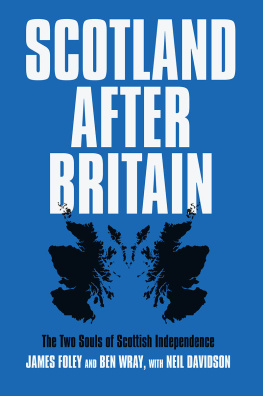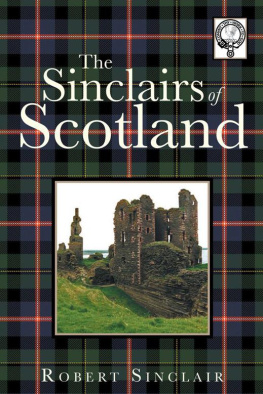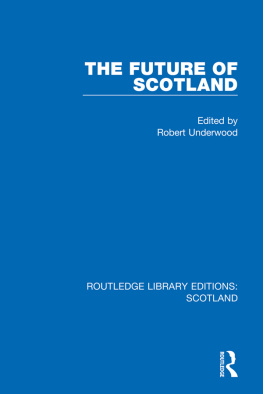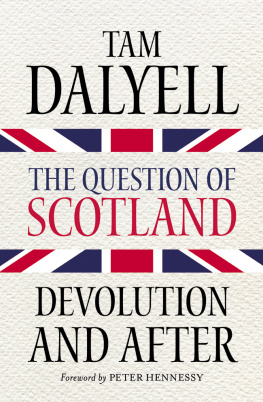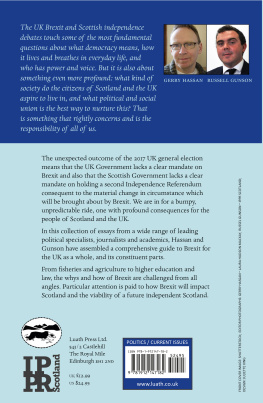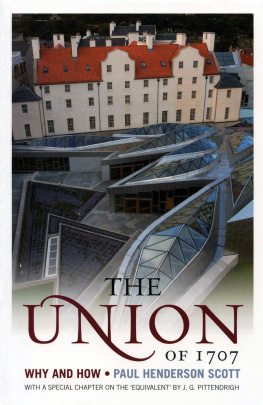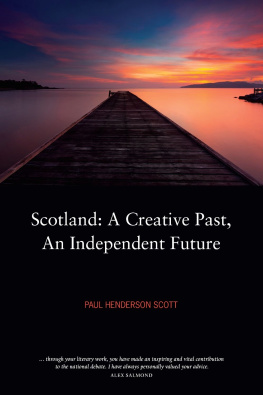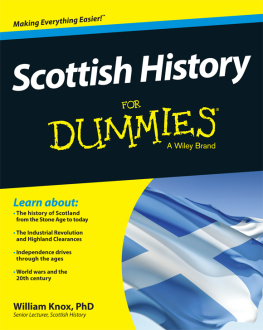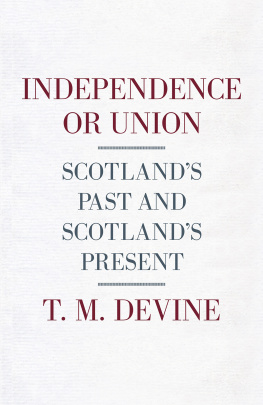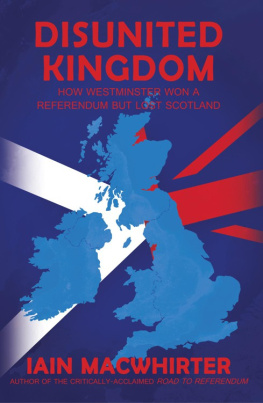Scottish Independence
Weighing Up the Economics
Gavin McCrone has studied, written and lectured about the Scottish economy over a period of many years. He was a Fellow and Tutor in economics at Brasenose College, Oxford, in the 1960s. He then spent two decades as Chief Economic Adviser to successive Secretaries of State for Scotland. He was successively head of two Scottish Government Departments the Industry Department for Scotland and the Scottish Development Department. He returned to his previous career in the 1990s as a professor of economics, first at Glasgow University and then at the Edinburgh University Business School. He is a Fellow of the Royal Society of Edinburgh and was a Vice President of the Society from 2002 to 2005.

This eBook edition published in 2013 by
Birlinn Limited
West Newington House
Newington Road
Edinburgh
EH9 1QS
www.birlinn.co.uk
Copyright Gavin McCrone 2013
Foreword Magnus Linklater 2013
The moral right of Gavin McCrone to be identified as the author of this work has been asserted by him in accordance with the Copyright, Designs and Patents Act 1988.
All rights reserved.
No part of this publication may be reproduced, stored or transmitted in any form without the express written permission of the publisher.
ISBN: 978-1-78027-159-0
eBook ISBN: 978-0-85790-668-7
British Library Cataloguing-in-Publication Data
A catalogue record for this book is available from the British Library
To my family, for whom Scotlands future is important
Foreword
As the date for a referendum on Scottish independence grows closer, arguments for and against what would amount to the greatest constitutional change in Britain for more than 300 years have grown intense. A sense of something approaching national anxiety can be discerned as Scots of every persuasion seek answers to the fundamental questions that will govern the outcome before they go to the polls in September 2014. Would an independent Scotland be worse or better off? More pertinently, perhaps, would it have the capacity to flourish? Or would the ending of the Union expose the country to growing hardship at a time of economic uncertainty?
Professor Gavin McCrone brings more than 40 years experience to bear on these crucial issues. As an academic and, for many years, a senior civil servant, he has been at the heart of economic planning in Scotland most significantly as Chief Economic Adviser to the Scottish Office from 1970 to 1992 for much of his career.
He approaches the subject from an objective standpoint, examining each aspect with a strong command of statistics and a dispassionate assessment of their merits. More importantly, perhaps, he comes unswayed by bias. On the one hand, he has advised successive United Kingdom governments on economic policy a background synonymous with the constitutional status quo. On the other hand, as a senior civil servant in 1974, he compiled a report for ministers on whether North Sea oil revenues would allow an independent Scotland to manage financially. He concluded not only that they would but that they had the capacity to transform the countrys fortunes. His paper remained confidential at the time but, if it had been publicly available, the course of Scottish politics might have been very different.
So neither side can afford to ignore Professor McCrones analysis. He is, in journalistic terms, a reliable source. More than that, he has the great merit of clarity. He examines each aspect of the independence debate with a combination of straightforward analysis and simply expressed conclusions, providing the bare minimum of statistics, set out in a helpfully comprehensible style.
He addresses head on the questions that most trouble voters whether floating or not. How wealthy a nation is Scotland? How dependent would it be on oil revenues? Would independence allow the country sufficient flexibility on taxation to bolster its economy? Could it afford to fund the welfare state on which it has grown to depend? Would it gain rapid entry to the EU and, if so, would it have to join the euro? What are the implications of adopting the pound as its currency? Could an independent Scotland have weathered the collapse of its once powerful banks? How viable is its energy policy? Above all, is North Sea oil the key that would unlock its potential or is it a diminishing and unreliable asset?
In addition to these critical issues, Professor McCrone examines the case for other options facing the nation: differing forms of devolution such as the proposals contained in the current Scotland Act; the so-called Devo-Max plan for full-scale fiscal independence; and its less extreme version, Devo-Plus. He questions the assumptions behind each, making the important point that they would all, in different ways, impinge on other areas of the United Kingdom not always to beneficial effect and goes on to develop his own favoured alternative.
The backcloth to these arguments is a decision which will confront every person of voting age living in Scotland. It is a more fundamental one than any they have voted on before. Unlike a general election, where the choice, however far-reaching, can be changed in five years time, this one is irreversible. If Scotland does, indeed, secede from the United Kingdom to form an independent state, it cannot then decide to rejoin if the outcome is not to its liking. Equally, if the decision is to remain part of the United Kingdom, then that too is one that will endure for many years at least for a generation, in the words of the First Minister, Alex Salmond; and, if any attempt were made to revisit it more frequently than that, it would, in all likelihood, be strongly resisted by the other countries of the UK because it would be destabilising for all of them.
It is therefore important that the implications of this critical choice are fully understood by those who will make it. While many people will rest their decision on personal or emotional grounds, opting perhaps to stay within the United Kingdom because of family connections or historical legacy, others will feel equally strongly that it is precisely this history that urges them towards the re-establishment of an independent Scottish nation.
Whatever the reasons influencing their vote, it is important that everyone who takes part in the referendum has a clear understanding of the implications for Scotland and the rest of the United Kingdom. They need answers to the questions that have arisen on the way towards the final decision and clear guidance on how best these can be answered. This book provides the road map that should be the essential companion for all those charged with deciding the future direction of their country.
Magnus Linklater
June 2013
Preface
In 1707 when the members of the Scottish and English Parliaments passed the Act of Union, parliaments were very far from being representative of the people. But, in 2014, it will be for every person of voting age living in Scotland to decide on their countrys constitutional future.
There are many Scots living in other parts of the United Kingdom or abroad who have views on this matter and feel they should have been able to vote. But, apart from the major complications that would introduce, I agree with the view taken by the Scottish and UK governments that it is right for people living in Scotland to be the ones taking the decision. It is they who will live with the consequences of that decision, whatever it may be.
I have no doubt that Scotland could prosper either as an independent country or if it chooses to remain part of the United Kingdom. But the consequences will be substantial whichever way the decision goes. So long as the issues are properly understood or at least as well understood as the available information allows there should be no complaint with the decision. This book weighs up the economic issues it does not attempt to deal with other important issues, such as defence. It is in the belief that many economic aspects of the decision are not well understood, because people lack the information that they need, that I have written this book.
Next page


